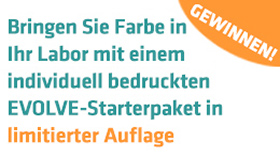Tenure Track - A Brighter Outlook for Top Scientists
Career strategies for young European scientists
by Bettina Dupont, Labtimes 06/2014
Page 1 | Page 2 | Page 3
Mentoring crucial
At the Finnish university, the first tenure track Assistant Professors were appointed in 2012. The authority for establishing a tenure track position lies with the rector, who receives the faculty’s proposal to fill vacancies either by advertising full professorships directly via appointment or by means of tenure track. Tenure track candidates are given a fixed-term contract of three to five years as Assistant Professor. Successful aspirants are promoted to Associate Professor for a further three to five years. A final positive evaluation leads to a permanent Full Professorship for the candidate. Currently, the University of Helsinki employs 32 tenure track Assistant Professors and eight Associate Professors. One of the latter was directly hired as an Associate Professor because of excellent qualifications.
At the Dutch University of Leiden, the Faculty of Science has offered a tenure track system since 2007. The career system has a strong focus on coaching, training and evaluations. External candidates with considerable postdoctoral experience and outstanding research records are hired on a temporary basis as Assistant Professors for a period of six years. According to a final evaluation after five years, successful candidates will be promoted to Associate Professor. As a rule, this position leads to an appointment as Full Professor three to five years later.
“The greatest assets of my tenure track position are growing independence and the dramatic increase in output. My reputation in the field has risen in the last four years and this has opened even more doors,” said Assistant Professor Dennis Claessen. At the Institute of Biology, Leiden, the scientist is investigating morphogenesis of streptomycetes. These microorganisms colonise dead and living organic material and are proficient producers of enzymes and antibiotics. “My strategy is to focus on one major achievement each year. In the first two years of the tenure track, I concentrated on setting up my lectures, a very time-consuming task. Subsequently, I increased my publication output, which is an important assessment factor and which helped me to get a major grant the following year,” Claessen explained. He considered guidance by an experienced member of staff a key success factor. “I had such a mentor. This was very helpful.”
Better working conditions
Ludwig-Maximilians-Universität (LMU) in Munich, Germany, launched its tenure track model in the year 2000. The tenure track starts at the level of a fixed-term Associate Professorship (W2). During a time period of three to maximally six years, tenure can be granted by offering a permanent Associate Professorship. Evaluation criteria are research performance on the basis of publications, the amount of external funding raised for research projects, awards, promotion of young scientists, supervision of doctoral candidates and teaching performance. Since 2013, it has also been possible to reach the level of a Full Professorship (W3).
Physicist Matthias Kling, a specialist for ultrafast nanophotonics, has been a W2 professor at LMU Munich since 2013. In the same year, he was awarded an ERC Starting Grant of over €1.5 million. He is investigating how the movement of electrons can be controlled by light pulses. “My tenure track position gives me the opportunity to focus on long-term projects. I can devote my time to research and to student training, because I do not have to plan where to apply next,” he said. “With a permanent position in prospect, it is easier for me to get funding and to attract PhD students.” Moreover, he noted, because the university’s support was self-evident, it was easier to become a coordinator of larger research projects.
A more peaceful private life
“The tenure track allows me to realise my scientific visions at my own pace without limitations,” observed Bettina Lotsch, since 2009 a W2-tt Professor at LMU’s Department of Chemistry. A few months ago, her position became permanent. “The possibility to devise and engage in independent research projects, supported by adequate infrastructure, start-up funding and resources, has been very beneficial in terms of scientific output,” said the specialist for functional nanostructures. Lotsch appreciates being involved in faculty affairs and in the decision-making processes of the department. The chemist moved to Munich from the University of Toronto, Canada, where she had been a postdoctoral fellow. Since 2011, Lotsch has also led the Nanochemistry group at the Max Planck Institute for Solid State Research in Stuttgart, Germany.
Hard work still necessary
“Being hired to fill a tenure track position intended to employ a researcher long-term, I get a real sense that the university is interested in seeing me succeed,” commented Jan Lipfert, since 2013 W2 professor at LMU’s Department of Biophysics and Molecular Materials. “While success certainly still requires hard work and is not automatic, having a long-term perspective is very different from being a postdoc, which can certainly be a very productive period, but is intrinsically limited in perspective and time horizon.” The physicist is investigating how biological macromolecules adopt their three-dimensional shapes and make specific interactions, how they deform under external forces and torques, and how they undergo conformational transitions to carry out their biological functions.
“It is important also to bear in mind the non-science factors of life. After completing a PhD and postdoctoral training, people are often at an age where they are in a long-term relationship and have children. Having a clear career path and longer-term perspective at that stage is very helpful,” Lipfert added. The scientist came to Munich from the Delft University of Technology, The Netherlands, where he had been a postdoc. He had already obtained his PhD from Stanford University.
In a few years, we will know whether these scientists were on the right track. LERU, in the meantime, will follow their paths attentively: “For most universities the tenure tracks are still in a relatively early trial stage (…) 2014 and the following years (…) promise to yield significant data on the success rate of tenure track and the social consequences for those, who are not successful on the tenure track.”
Page 1 | Page 2 | Page 3
Last Changed: 21.11.2014










